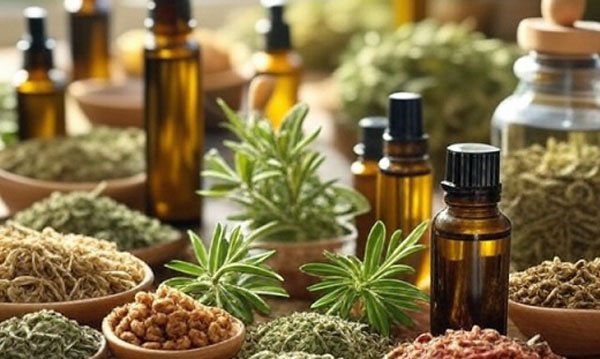Mystical Properties of Essential Oils: Essential oils are often attributed with mystical or spiritual properties in various cultural and holistic practices. They are derived from plants through distillation or cold pressing and believed by some to interact with the body’s energy fields or chakras. Common mystical associations include:
- Lavender: Promotes peace, purification, and spiritual healing; believed to calm the mind and enhance intuition.
- Frankincense: Associated with sacred rituals, meditation, and grounding; thought to connect users to higher consciousness.
- Sandalwood: Used for protection, spiritual clarity, and deepening meditation; considered to ward off negative energies.
- Rose: Linked to love, compassion, and heart chakra activation; believed to foster emotional healing and divine connection.
- Sage: Used in smudging for cleansing spaces of negative energy; thought to promote wisdom and spiritual purification.
These properties stem from traditions like aromatherapy, Ayurveda, and New Age spirituality, where oils are used in rituals, meditation, or energy work. However, these mystical effects are anecdotal, with no empirical evidence supporting supernatural claims.
Popularity of Essential Oils: Essential oils have surged in popularity, driven by wellness trends and holistic health movements. Key points include:
- Market Growth: The global essential oils market was valued at around $8.4 billion in 2022, with projected growth to $15 billion by 2030, driven by demand in cosmetics, aromatherapy, and personal care products.
- Uses: Popular for aromatherapy (diffusers, inhalation), skincare, massage, and alternative medicine. They’re marketed for stress relief, sleep improvement, and mood enhancement, though clinical evidence is mixed.
- Cultural Appeal: Social media platforms like Instagram and TikTok have boosted their visibility, with influencers promoting oils for self-care and spiritual practices. Multi-level marketing companies (e.g., doTERRA, Young Living) have also fueled widespread adoption, though they’ve faced criticism for exaggerated health claims.
- Consumer Demographics: Popular among millennials and Gen Z, particularly women, seeking natural alternatives to pharmaceuticals or synthetic products. Urban and suburban areas see higher usage due to wellness culture.
- Controversies: Misleading claims about curing ailments (e.g., cancer, anxiety) have led to FDA warnings. Overuse or improper application can cause skin irritation or allergic reactions.
Always consult a healthcare professional before using essential oils for medical purposes.

